Fibrestop Project
In the future you will be able to buy a machine that will already be equipped with a fibre filter. It will be seamlessly integrated into the washing machine and will automatically stop microplastic fiber pollution.
Today this is a dream. With PlanetCare this dream will soon become a reality!
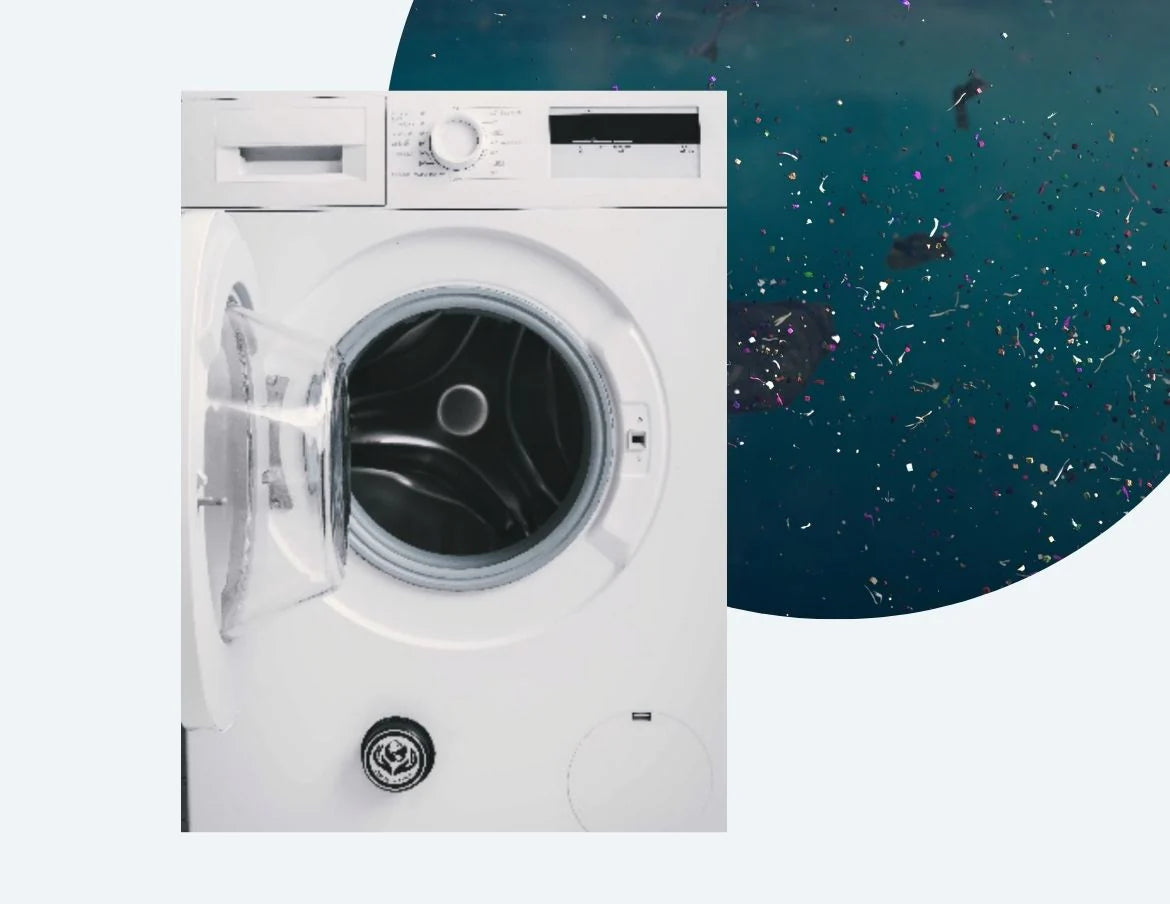
In 2020 PlanetCare received a highly competitive European Innovation Council Accelerator grant to start the Fibrestop project: a two-year project during which we will fully develop a microfibre filter that will be built into a washing
machine. Integrating the filter into the machine opens many possibilities that are not possible with an external filter:
- A single filter will last for months
- More than 95 % of fibers will be caught
- The machine will follow & report on the filter functioning
- … and PlanetCare will make sure that fibers will be recycled!
During the project we will establish direct links with washing machine
producers to adapt the filter to different machines. The end of the
project will be immediately followed by commercialization of new
machines with an integrated, efficient filter, and your household will no longer send fibers into the environment.
Fiberstop Context
Fibrestop objectives address some of the most pressing challenges of our society. They are in the context of the most ambitious goals defined by the European Union and the global community.
The reduction of pollution and the circular model employed by PlanetCare address European Green Deal pillars "Zero pollution ambition for a toxic-free environment" and "Preserving and restoring ecosystems and biodiversity" as well as the goals of the European Strategy for Plastics in a Circular Economy.
Our approach contributes to solving several global challenges expressed in the UN Sustainable development goals. The most direct is the contribution Goal 14 - Life below water.
Fiberstop Value Proposition
Steps towards commercialisation
The project has both technical and strategic objectives that will result in a novel market leading product ready for commercialization.
Project Achievements
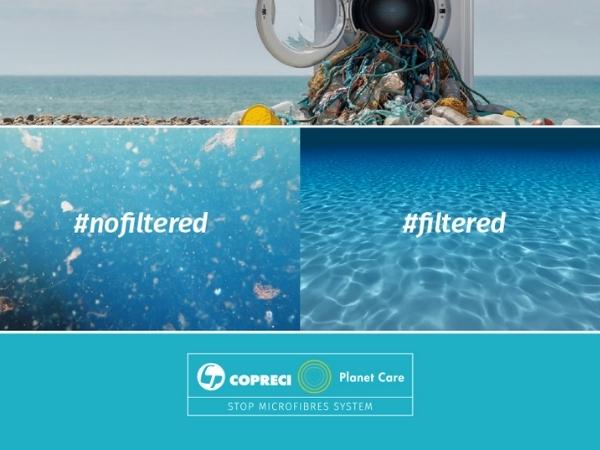
Partnership established with Copreci, the global first-tier supplier of drain pumps for a number of washing machine producers.
PlanetCare and Copreci have signed an agreement to take the innovative microfibre filter developed within the Fibrestop project toward fast customer oriented commercialization. As a well established first-tier supplier Copreci will support commercialization and production of a product that will enable OEMs to rapidly and efficiently adapt to public demand and regulatory requirements. The cooperation opens the opportunity to develop an integrated pump-filter assembly.t
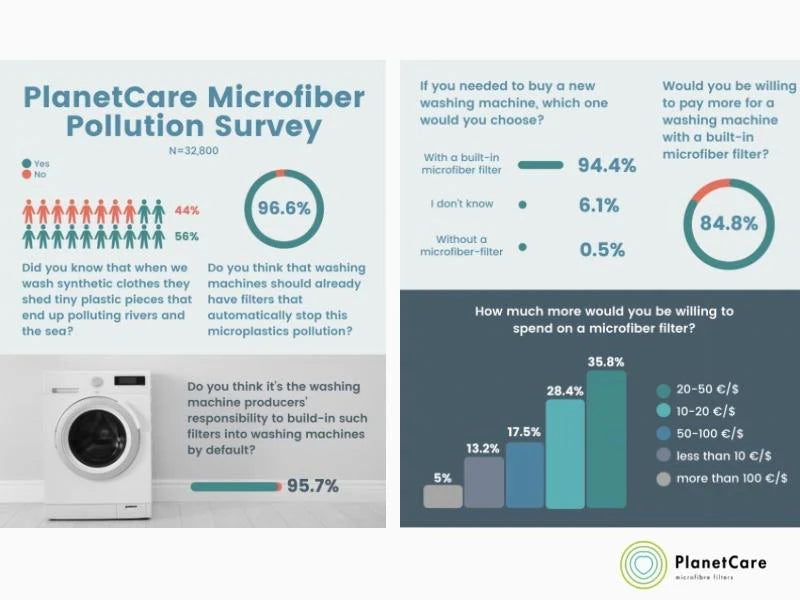
Global survey of 32,000 people showing consumer preferences for microfibre filters
PlanetCare conducted a global on-line survey exploring customer preferences regarding microfibre filters integrated in future washing machines. More than 32.000 responses were received giving an overwhelming support for microfibre filters being integrated in washing machines. Respondents expressed a clear interest to purchase washing machines with microfibre filters when they become available, even accepting a modest price increase for the
pollution preventing addition. Despite the clear support for measures to combat fibre pollution survey responses showed that a significant part of the population is still not aware of the issue indicating the need for continued awareness raising.
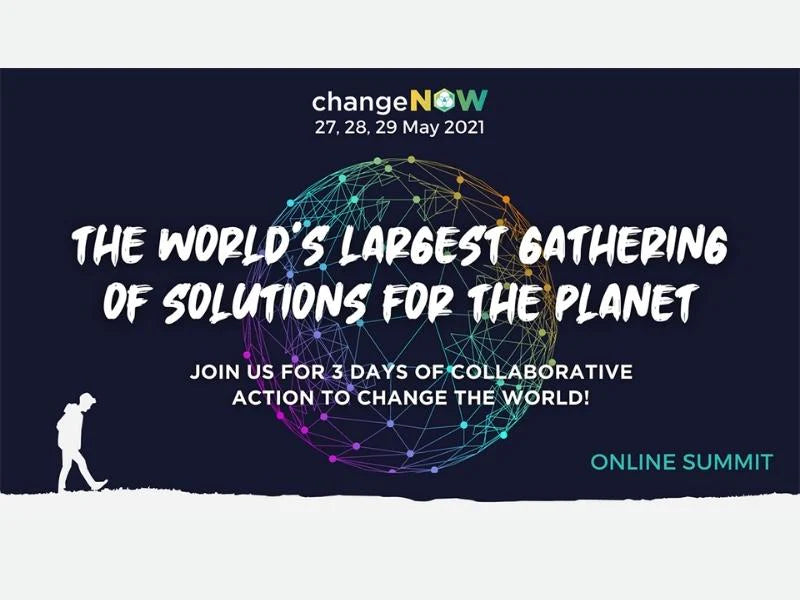
Fibrestop presented at the 2021 ChangeNOW Congress - The largest impact gathering in the world
Fibrestop made one of its first public appearances at the ChangeNow Congress.
In 2021 one of the world’s largest environmental gatherings was held on a virtual platform which put a new spin on the event. During the event PlanetCare presented its vision of the future with Fibrestop filters integrated in all washing machines.
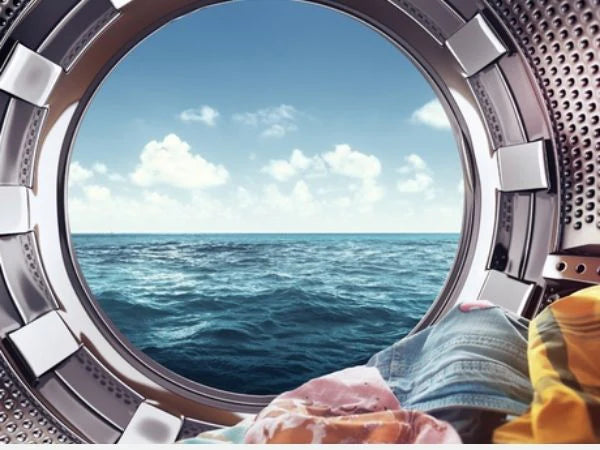
UK-focused survey of 500 people showing a great need for more education on microfiber pollution
Following the publication of the first report from the UK’s all-parliamentary group on microplastics, PlanetCare conducted a UK-focused online survey exploring awareness about microplastic pollution, policy changes and solutions available. Over 500 people responded to the survey. An overwhelming majority (over 90% for filter version 1.0.) were unaware that France has already passed legislation that the UK is now seeking to introduce. Similarly, over 60% the respondents did not know microfibers are released during every wash, and over 80% were unaware microfiber
filters already exist. Nonetheless, respondents were interested in the issues and over 50% opted in to be kept informed about everything related to microfiber pollution. While awareness about microfiber pollution has been rising over the last years, the survey showed there is still a great need for more awareness-based activities and that
there’s a demand for such information.
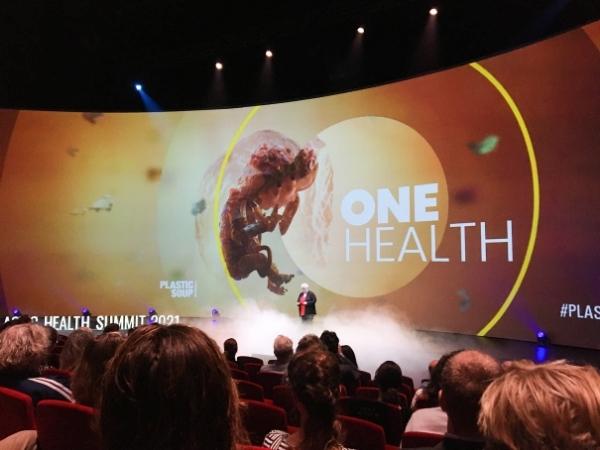
Fibrestop at Plastic Health Summit 2021 - The link between microplastic pollution and human health
PlanetCare attended and exhibited at Plastic Health Summit 2021. Researching and understanding the link between microplastics pollution and the effect on human health has never been more needed than now, when we know that we have microplastics in our blood. Microplastics has also been found in the placenta, animals, and plants.
The exhibition opened the door to many interesting conversations on built-in microfiber filtering technologies and the need for legislating microfiber pollution prevention.
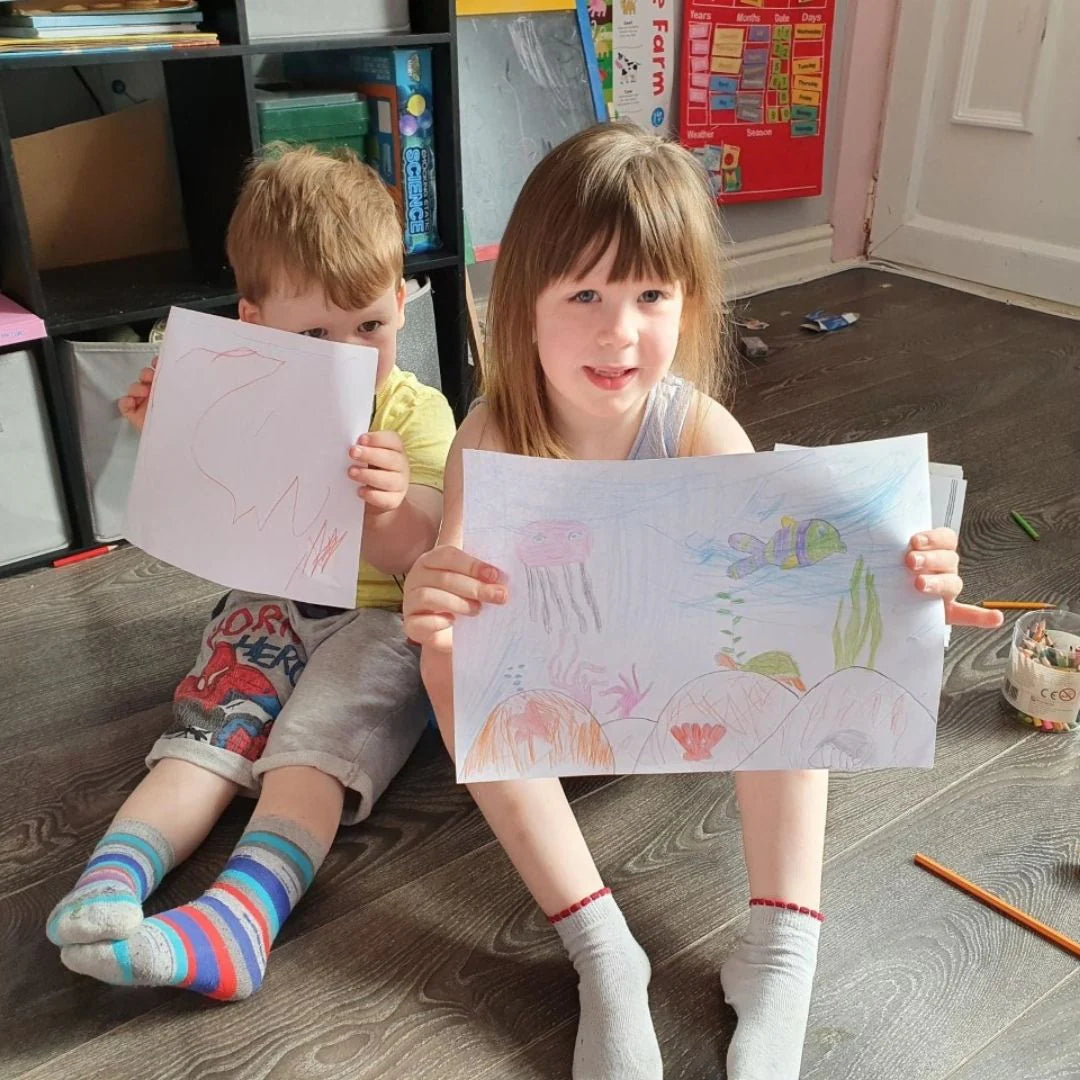
Teaching children about microfiber pollution
Children are our future. Besides leading by example, we at PlanetCare believe that we must also teach them how to live sustainably and within the planetary boundaries. For World Oceans Day 2021 we launched a campaign that encouraged children to express what microplastic pollution means to them. We also developed an engaging colouring book and made it available to everyone.
Dedicated online resource hub for microfiber pollution
To continuously provide up-to-date and research-based information about microfiber pollution, we launched our own online blog Filtered. It has generated thousands of visits already in the first few months after launch, indicating a growing interest in the topic.
Leveraging social media platforms to spread awareness
Social media is where the conversation happens. We're there leading the narrative, educating people about microfiber pollution via digestible, easy-to-consume content and creating the basis for a long-lasting behavior change.

















